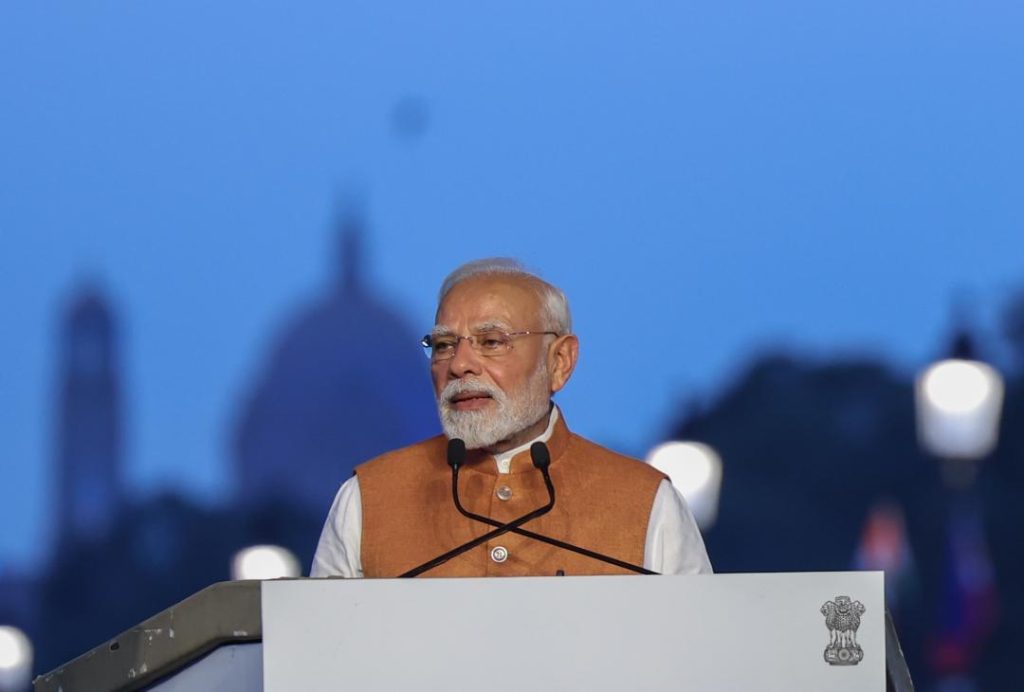
Why PM Modi Spoke About Farmers Amid Trump’s 50% Tariffs Move?
In a recent development, Indian Prime Minister Narendra Modi sparked a heated debate when he expressed solidarity with farmers, livestock rearers, and fisherfolk amidst the ongoing trade tensions between India and the United States. The sudden move has left many wondering why the Prime Minister chose to speak about farmers at this juncture. In this blog post, we will delve into the reasons behind Modi’s decision and explore the implications of the ongoing trade war on India’s agricultural sector.
Background of the Trade Tensions
The trade tensions between India and the US date back to 2018 when the US government imposed tariffs on steel and aluminum imports from India, citing national security concerns. In response, India retaliated by imposing tariffs on 28 US products, including almonds, apples, and walnuts. Since then, the trade tensions have escalated, with both countries imposing tariffs on each other’s goods.
Recently, US President Donald Trump announced a 50% tariff on Indian-made motorcycles, which is expected to significantly impact India’s automotive industry. However, it is the Indian farm sector that is now under the spotlight, with reports suggesting that the US is pressuring India to open its market to genetically modified (GM) soyabean and corn.
Why Are GM Soyabean and Corn a Concern for Indian Farmers?
Indian farmers are wary of GM soyabean and corn due to concerns about their impact on domestic prices and food security. While the US has a reputation for producing high-yielding GM crops, India’s average per-hectare corn yield is 3.5 tonnes and that of soyabean is 0.9 tonnes. In contrast, US yields are significantly higher, at 11 and 3.5 tonnes respectively.
Indian farmers believe that if GM soyabean and corn are allowed to enter the Indian market, they will crash domestic prices and threaten the livelihoods of millions of farmers. Additionally, there are concerns about the potential environmental and health risks associated with GM crops.
PM Modi’s Statement: A Message of Solidarity with Indian Farmers
In response to the trade tensions and the US pressure to open up the Indian market to GM soyabean and corn, PM Modi expressed solidarity with Indian farmers, livestock rearers, and fisherfolk. His statement was seen as a message of reassurance to the farm community, which has been facing numerous challenges in recent years.
The Prime Minister’s statement was also seen as a strategic move to counter the US pressure and maintain India’s stance on agricultural trade. By speaking out in support of farmers, Modi was able to send a strong message to the US government that India will not compromise on its agricultural policies and will protect the interests of its farmers.
Implications of the Trade War on Indian Agriculture
The ongoing trade war between India and the US is likely to have far-reaching implications for India’s agricultural sector. The Indian government has been working to boost farm productivity and incomes through initiatives such as the Prime Minister’s Kisan Samman Nidhi (PM-KISAN) scheme, which provides financial assistance to small and marginal farmers.
However, the trade war has created uncertainty and volatility in the agricultural market, making it difficult for farmers to plan and invest in their crops. The tariffs imposed by the US on Indian goods, including agricultural products, have also made it challenging for Indian farmers to export their produce.
Conclusion
PM Modi’s statement in support of Indian farmers was a timely move to counter the US pressure and maintain India’s stance on agricultural trade. The Indian government has been working to protect the interests of its farmers and ensure food security, and the Prime Minister’s statement was seen as a message of reassurance to the farm community.
As the trade war between India and the US continues to escalate, it is essential for the Indian government to maintain its commitment to protecting the interests of its farmers and agricultural sector. The farm sector is a critical component of India’s economy, and any threats to its stability and growth can have far-reaching implications for the country’s overall development.
Source:






